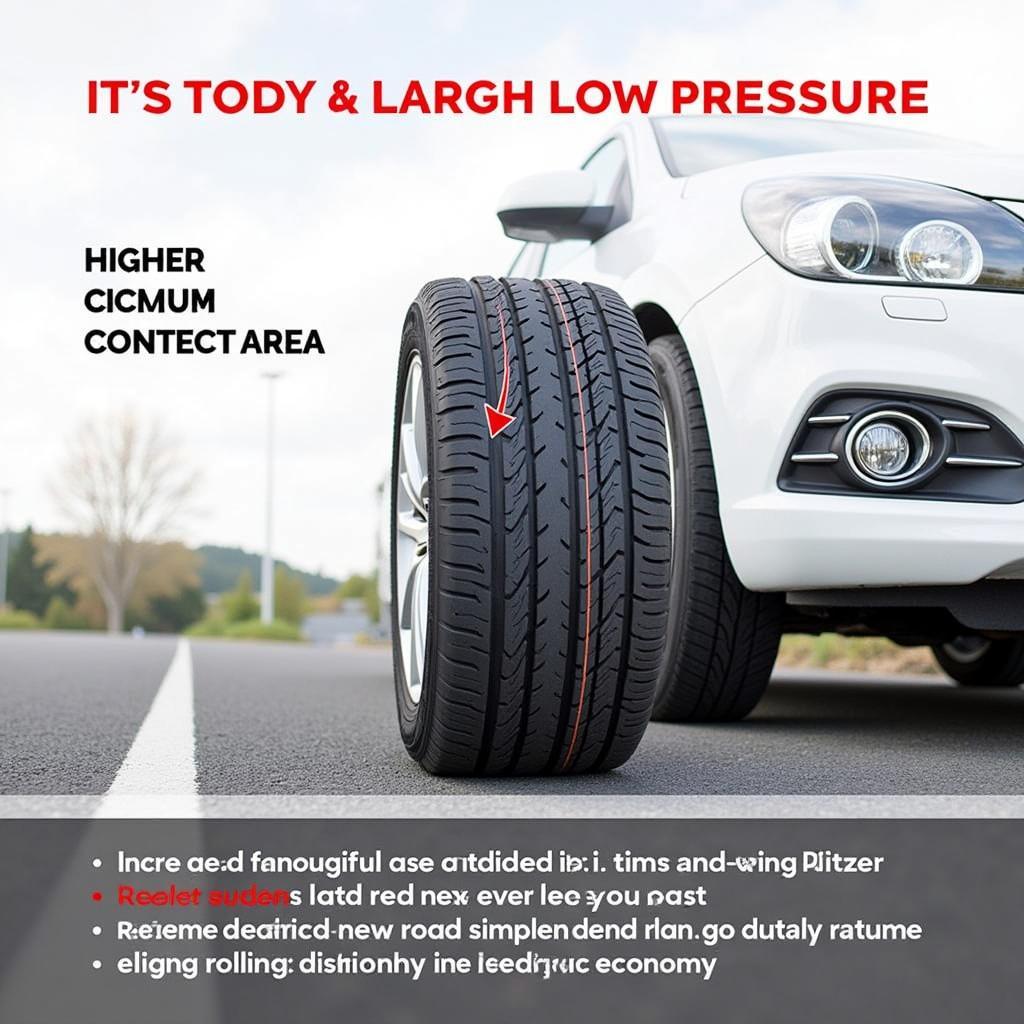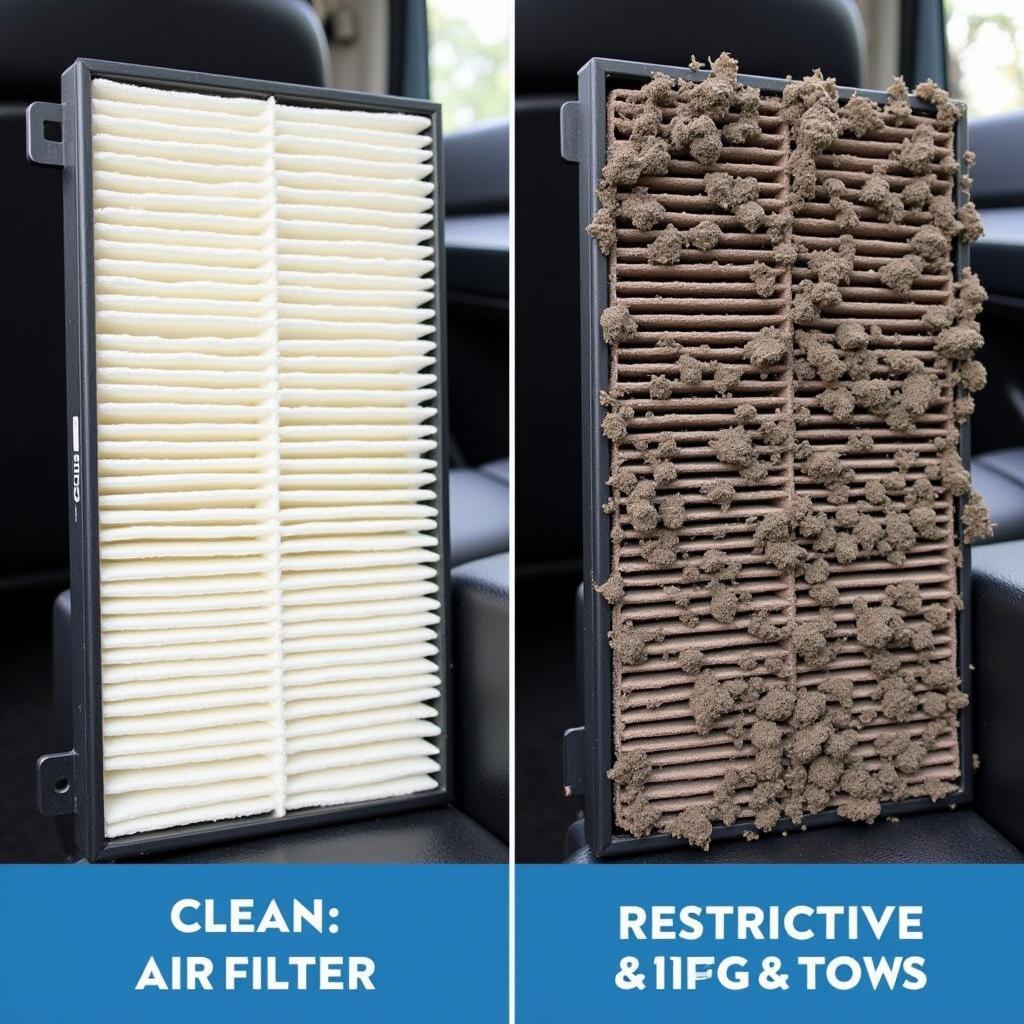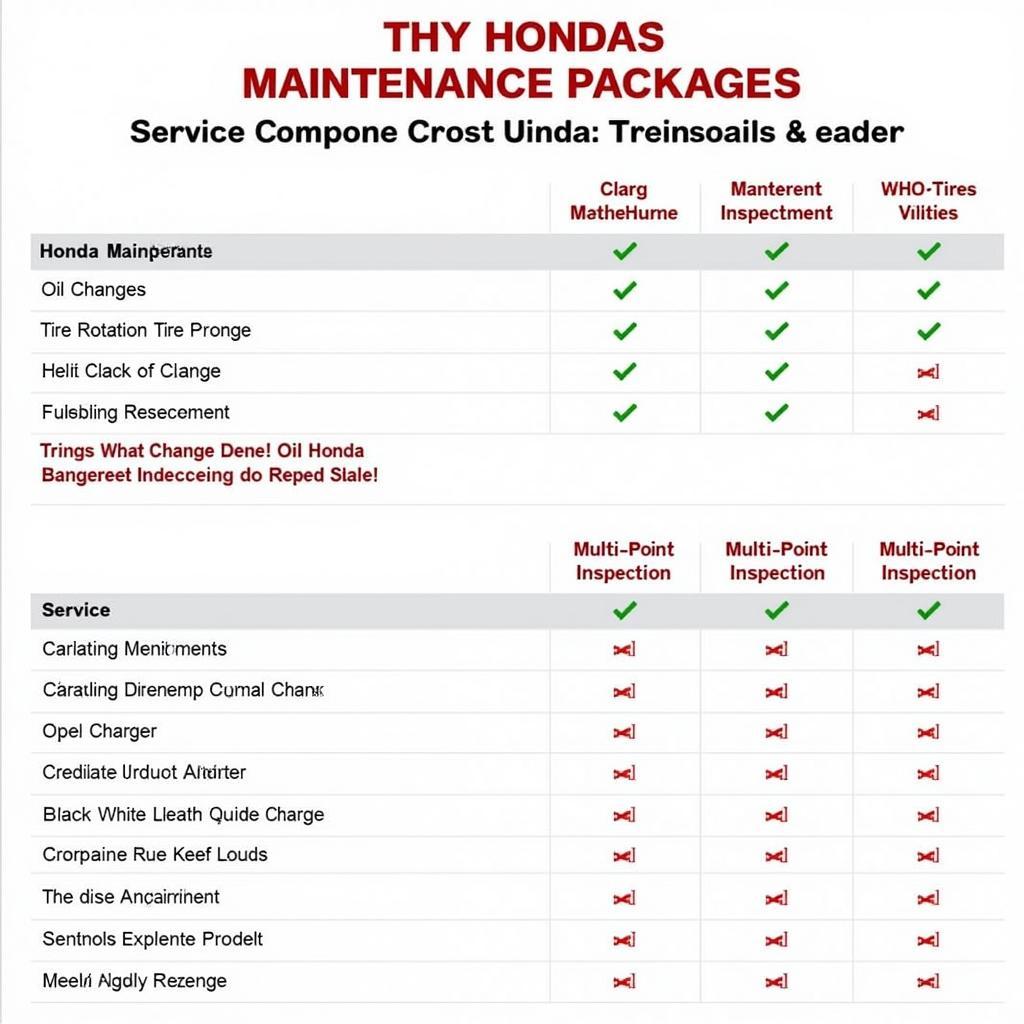Poor gas mileage is a common complaint among car owners, and it can be triggered by a multitude of issues. Understanding What Car Problems Could Cause Gas Mileage To Be Reduced allows you to address the issue quickly, saving you money at the pump and potentially preventing more serious damage down the line. This article delves into the various culprits behind reduced fuel efficiency, offering insights and solutions for car owners, mechanics, and technicians alike.
Having a car that constantly guzzles gas can be frustrating and expensive. Numerous factors can contribute to decreased fuel efficiency, from simple maintenance oversights to more complex mechanical problems. So, what car problems could cause gas mileage to be reduced? Let’s explore some of the most common reasons.
Common Culprits Behind Poor Fuel Economy
Several factors, ranging from driving habits to mechanical malfunctions, can contribute to poor gas mileage. Understanding these factors can help you diagnose and rectify the problem.
Tire Pressure and Condition
Incorrect tire pressure is one of the easiest fixes for poor fuel economy. Under-inflated tires create more rolling resistance, forcing your engine to work harder. Check your tire pressure regularly and maintain the recommended PSI found in your owner’s manual or on the sticker inside the driver’s side doorjamb. Also, worn-out or damaged tires can decrease fuel efficiency.
 Low Tire Pressure Affecting Fuel Economy
Low Tire Pressure Affecting Fuel Economy
Faulty Oxygen Sensor
A malfunctioning oxygen sensor can disrupt the air-fuel mixture, leading to excessive fuel consumption. The oxygen sensor tells the engine control unit (ECU) how much oxygen is in the exhaust, allowing it to adjust the air-fuel ratio for optimal combustion. A faulty sensor can lead to a rich mixture (too much fuel), reducing your miles per gallon. You can learn more about related issues with fuel injectors at symptoms of car fuel injector problems.
Clogged Air Filter
A restricted airflow due to a dirty air filter makes the engine work harder, consuming more fuel in the process. Replacing your air filter regularly is a simple and cost-effective way to improve fuel economy.
 Clogged Air Filter and Reduced Mileage
Clogged Air Filter and Reduced Mileage
Driving Habits
Aggressive driving, such as rapid acceleration and hard braking, significantly impacts fuel consumption. Smooth, consistent driving can dramatically improve your gas mileage. Avoid speeding and anticipate stops to conserve fuel.
Mechanical Issues Affecting Gas Mileage
Sometimes, the cause of poor gas mileage goes beyond simple maintenance and requires a more in-depth look at the car’s mechanics.
Malfunctioning Fuel Injectors
Leaking or clogged fuel injectors can disrupt the precise fuel delivery to the engine, causing it to burn more fuel than necessary. This problem can also lead to rough idling and decreased engine performance. If you suspect injector issues, check out symptoms of car fuel injector problems.
Failing Spark Plugs
Worn-out spark plugs can lead to incomplete combustion, wasting fuel and reducing power. Regularly replacing your spark plugs as recommended in your owner’s manual can help maintain optimal fuel efficiency. For more insights on spark plug issues, see car problems associated with spark plugs.
Transmission Problems
A slipping or malfunctioning transmission can put a significant strain on the engine, resulting in decreased fuel economy. If you notice any unusual noises or shifting problems, it’s crucial to have your transmission inspected by a qualified mechanic. You might also want to check out common issues with diesel cars experiencing low mileage at diesel car low mileage problems.
“Regular maintenance is key to optimal fuel economy. A well-maintained vehicle not only saves you money on gas but also helps prevent costly repairs down the road,” says Robert Johnson, ASE Certified Master Technician.
What Should I Do If My Car’s Gas Mileage Decreases Suddenly?
A sudden drop in gas mileage could indicate a serious issue. It’s best to consult a mechanic for a thorough diagnosis and appropriate repairs. For additional car trouble resources, see girl with car problems. Don’t ignore exhaust issues either; for more on that, see car exhaust problems symptoms.
“Ignoring small problems can lead to larger, more expensive issues. Addressing reduced fuel economy promptly can prevent further damage and ensure your car runs efficiently,” adds Sarah Miller, Automotive Engineer.
In conclusion, what car problems could cause gas mileage to be reduced? Several factors, from tire pressure and air filter condition to more complex issues like faulty oxygen sensors, fuel injectors, and transmission problems, can contribute to decreased fuel efficiency. Regular maintenance, attentive driving habits, and prompt attention to any unusual symptoms can significantly improve your gas mileage and prevent costly repairs. If you’re experiencing a decrease in your car’s fuel efficiency, contact us at AutoTipPro for expert advice and assistance. Our number is +1 (641) 206-8880 and our office is located at 500 N St Mary’s St, San Antonio, TX 78205, United States.





Leave a Reply